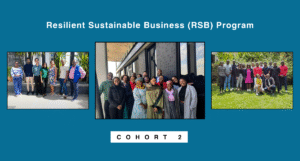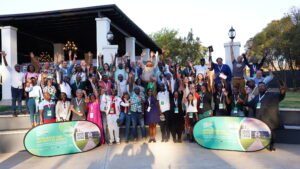The COVID-19 pandemic has exposed and exacerbated many global inequalities, created new obstacles on the path to achieving the Sustainable Development Goals and left millions of people at greater risk of being trafficked for sexual exploitation, forced labour, forced marriage and other crimes. This year’s World Day Against Trafficking in Persons honours the first responders helping to end the crime of human trafficking: law enforcement officers, social workers, healthcare professionals, NGO staff and [businesses] working around the world to protect the vulnerable.

The health and economic impacts of COVID-19 is disproportionately affecting underserved populations such as communities of color, women, undocumented immigrants, indigenous populations, informal workers, and asylum seekers. This calls to further exacerbate patterns of the already pre-existing inequalities in our society. Domestic violence against women and girls, for example, has intensified across the globe since the COVID-19 outbreak, and in New York City, the death rates among Black/African American persons are significantly higher when compared to that of other races and ethnicities. As employers and corporate citizens, it is important to take these impacts, and historic inequities, into consideration.
During the COVID-19 crisis, the informal work sector, which constitutes 50-80% of employment in economically developing cities, has been hit the hardest in the global workforce, further highlighting pre-existing challenges for this disadvantaged group. Within informal workers, migrant workers are even more vulnerable due to their presence in sectors that are particularly vulnerable to an economic downturn and the lack of access to employee protections. The access migrant workers have to public funds may be specifically restricted as a condition of their visas. For example, the South African government’s initiative to help small and medium-sized businesses is only available for those with South African citizenship.
Nevertheless, we honour the global movement of companies using their business as a force for good by making a pledge daily to commit to the wellbeing of their workers and employees. Certified B Corporations (B Corps) consider the disparate impacts on their workers, particularly those that may be from underserved populations or at a risk of being affected disproportionately by the pandemic. This includes workers over 60, workers that may be undocumented immigrants, and workers of different ethnicities. B Corps often lead by example when it comes to best practices for their stakeholders, and in this new environment it is important to not just consider what additional offerings can be provided to workers, but also what existing practices a company might have that can be reinforced.
According to Antonio, if the world is to put human dignity and human rights at the centre of the COVID-19 response and recovery, we need to do more to protect trafficking victims and prevent vulnerable people from being exploited. On this World Day against Trafficking in Persons, let us pledge to work toward creating inclusive societies and economies that leave no one behind.
The Blue Heart Campaign is a global awareness raising initiative to fight human trafficking and its impact on society. It seeks to encourage involvement from governments, civil society, the corporate sector and individuals alike, to inspire action and help prevent this heinous crime. The Blue Heart is increasingly recognized as the international symbol against human trafficking, representing the sadness of those who are trafficked while reminding us of the cold-heartedness of those who buy and sell fellow human beings.
LET’S GET TO WORK
- https://www.un.org/en/observances/end-human-trafficking-day/messages
- https://www.unwomen.org/-/media/headquarters/attachments/sections/library/publications/2020/issue-brief-covid-19-and-ending-violence-against-women-and-girls-en.pdf?la=en&vs=5006
- https://www.cdc.gov/coronavirus/2019-ncov/need-extra-precautions/racial-ethnic-minorities.html
- https://www .wri.org/blog/2020/04/coronavirus-inequality-cities
- https://www.ippr.org/blog/migrant-workers-and-coronavirus
- https://www.weforum.org/agenda/2020/04/how-coronavirus-could-hit-the-billions-migrant-workers-send-home/




